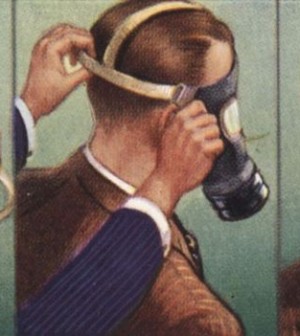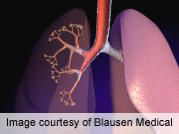- 7 Best Breads for Maintaining Stable Blood Sugar
- Gelatin vs. Collagen: Which is Best for Skin, Nails, and Joints?
- The Long-Term Effects of Daily Turmeric Supplements on Liver Health
- Could Your Grocery Store Meat Be Causing Recurring UTIs?
- Are You Making This Expensive Thermostat Error This Winter?
- Recognizing the Signs of Hypothyroidism
- 10 Strategies to Overcome Insomnia
- Could Artificial Sweeteners Be Aging the Brain Faster?
- Techniques for Soothing Your Nervous System
- Does the Water in Your House Smell Funny? Here’s Why
Gene Study Helps Advance Diagnosis of Cystic Fibrosis


MONDAY, Aug. 26Researchers who identified 105 new genetic mutations that cause cystic fibrosis say their findings will improve diagnosis and could increase the number of patients who receive individualized drug treatment.
Cystic fibrosis is a genetic disorder that causes a buildup of thick mucus in the lungs, resulting in frequent lung infections, breathing problems and decreased lung function. Eventually, the repeated infections destroy the lungs.
More than 1,900 mutations had already been identified in the gene responsible for cystic fibrosis, but it was unclear how many of them actually contribute to the disease.
In this study, researchers analyzed genetic information from nearly 40,000 cystic fibrosis patients in order to determine which of the 1,900 mutations are benign and which are harmful. Their findings increased the number of mutations known to cause cystic fibrosis from 22 to 127.
The study was published online Aug. 25 in the journal Nature Genetics.
Identification of these additional mutations in the cystic fibrosis transmembrane conductance regulator (CFTR) gene will bring certainty to families about whether someone has cystic fibrosis or is a carrier, and will also help efforts to design new drugs that target specific mutations. There is already one such drug on the market.
“Since not all mutations cause disease, sequencing the DNA in both copies of your CFTR gene and finding an abnormality in one wouldn’t tell us if you are a carrier for [cystic fibrosis] unless we knew if that abnormality causes [cystic fibrosis],” Dr. Garry Cutting, a professor of pediatrics in the McKusick-Nathans Institute of Genetic Medicine at the Johns Hopkins University School of Medicine, said in a Hopkins news release.
“Until this new work, more than a quarter of couples in which both partners were found to carry a CFTR mutation were left wondering if their mutations were going to affect their offspring. Now it’s down to 9 percent,” he explained.
More information
The U.S. National Heart, Lung, and Blood Institute has more about cystic fibrosis.
Source: HealthDay
Copyright © 2026 HealthDay. All rights reserved.










